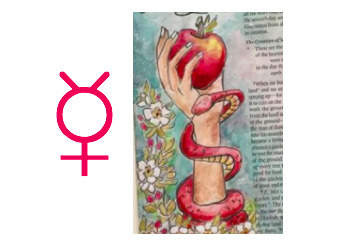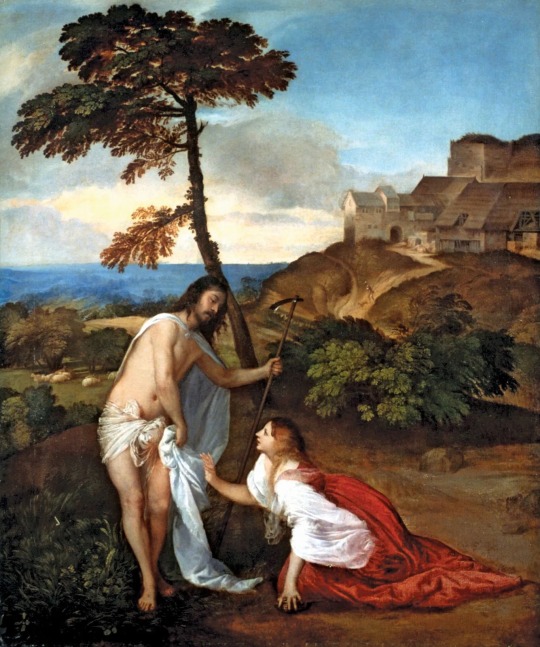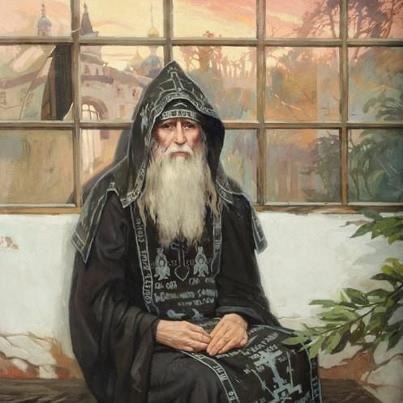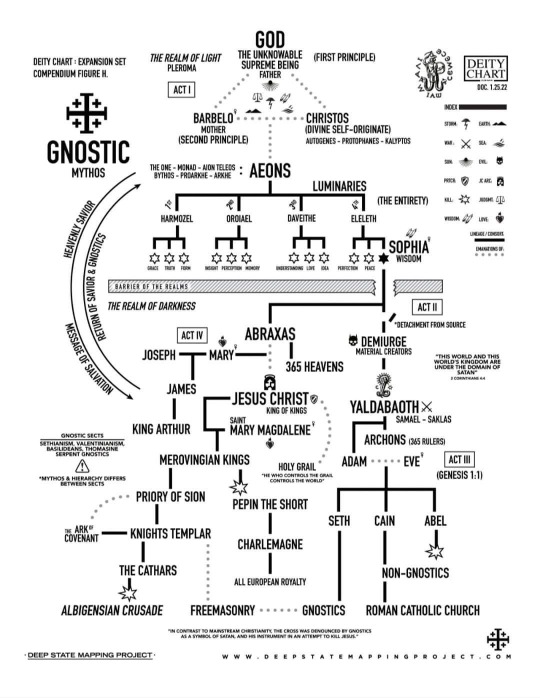#gnostic theology
Text
Part of what makes Christianity at large not a cult is there is no Secret Knowledge. It's all there. You can't level up.
My sister, discussing gnostic heresies
619 notes
·
View notes
Text

The myth of Adam and Eve may have been written in the Age of Gemini
Associating with the first appearance of man and woman on earth, Gemini makes the first human appearance in the zodiac, following Mars, Aries (Adam) and Venus, Taurus (Eve).
Eden was a product of the preceding agricultural Taurus Age.
Adam symbolised the animus, masculine principle and eve symbolised the anima, feminine principle. Adam and Eve are also Castor and Pollux, the twins immortalised in the Gemini constellation
The sign of Gemini is the union of these polarities, yin and yang, shadow and light,
the forbidden fruit from the tree of life was consumed in their desire for knowledge through the awareness of duality, good and evil. The snake informed eve that should she eat from the tree, 'your eyes will be open and you will be like God, knowing good and evil'
The shape of the apple held in the hand of eve resembles the Mercury glyph ~ Cherry
#age of gemini#castor and pollux#mythology#theology#astrotheology#gemini#adam and eve#christian mysticism#gnostic
125 notes
·
View notes
Text

"Then Peter said to Mary, "Sister, we know that you are greatly loved by the Saviour, more than any other woman. Tell us those words of His that you remember, the things which you know and we don't, the teachings we never heard."
Mary answered, saying: "What is hidden from you I shall reveal to you. Whatever is unknown to you, and I remember, I will tell you."
And she began saying these words to them.
She said, "Once I saw the Lord in a vision and I said to him:
'Lord, Rabouni, now I see you in this vision.
He answered me and said: 'Blessed are you Mary, for you do not waver at the sight of me. How wonderful you are! For this is where the treasure lies - in the nous, that place where heaven and earth meet, where deep understanding arises in the heart and mind."
I asked him this: 'Now tell me Lord, how does a person see such a vision, is it through their soul or through the Spirit?
asked him this: 'Now tell me Lord, how does a person see such a vision, is it through their soul or through the Spirit?
The Saviour answered: 'It is neither through the soul nor through the Spirit, but through the nous, the understanding which arises between the two, that is how the vision is seen."
-Gospel of Mary page 10.
#books#history#literature#religion#theology#mysticism#esotericism#religious#gnosticism#gnosis#gnostic teachings#gnostic gospel#gospel of mary#gnostic writing#esoterica#esoteric#gnostism#gnostic christianity#secret teaching#book quotes#book#reading#aesthetic#christian aesthetic#religious aesthetic#religious imagery#mary magdalene#ldr#ldr aesthetic#lan del rey
16 notes
·
View notes
Text
On Priesthood…
1️⃣A priest is a soldier of Christ, and like any regular soldier requires self-discipline, dedication and a sense of purpose.
2️⃣Most of all a priest is prayer warrior. Prayer is the foundation and centre of the religious life.
3️⃣A priest is also a scholar, dedicated to the study of scripture and Christian teachings.
4️⃣A priest is also a preacher able to teach others and share the Good News of Jesus Christ.
5️⃣And finally, a priest should be a spiritual father and pastor to their community.
Let us pray for priests and those called to the priesthood.

#catholic#christianity#gnostic christianity#god#jesus#jesus christ#jesusisgod#meditation#mysticism#orthodox#protestant#religon#spirituality#theology#oneness#nondualism#nonduality#father god#gospel#evangelicals#priest#priesthood
26 notes
·
View notes
Text
On a possible lost name of Loki:
I have speculated previously that, in order to incorporate new ideas into heathenry, we not only need to be reading current scholars’ work and revising our ideas to fit the currently available evidence into the Religion With Homework(™); we also need to find ways to evaluate unverified personal gnosis (UPG) and shared gnosis (SPG) from devotees for possible incorporation into new theology. With this blog post, I’m going to put my money where my mouth is.
I have a longstanding UPG (from multiple pendulum-and-alphabet-board conversations with Loki over the course of months, confirmed by other divination methods) that Loki was once also named ‘Aceilon’. Loki tells me it’s pronounced with a hard C, Ah-Keel-on. (Yes, I have very enthusiastic permission from the aspect of Loki who I interact with to share this ‘lost name’.)
There doesn’t appear to be a shred of independent evidence for that name ever being used (although perhaps I’m not looking in the right places). So, how does one evaluate this new piece of information?
Well, we could discard it immediately based on it being UPG. We could ask for independent confirmation from other devotees, which would make it SPG, still a fairly tenuous status.
Or we could measure it against what we do know about Loki. My last post looked at a number of possible etymologies of Old Norse ‘Loki’. (Probably not all those etymologies are completely sound. I am Not A Linguist and not able to evaluate them myself.) William Sayers, in “Norse ‘Loki’ As A Praxonym”, notes that many of the names of deities and other entities in Old Norse myths give us information about those who bear them.
So, if ‘Aceilon’ is a lost name for Loki, it should reflect Loki’s personality and other qualities in its etymology.
I’m not sure what language ‘Aceilon’ would be. It may have the form of a Continental Celtic god name, or one from an even earlier bronze- or stone-age culture. We do know that Norse mythology probably resulted from the meeting of multiple belief systems during the Migration Age or earlier, so a non-Germanic etymology isn’t out of the question, but it would still likely have a Proto-Indo-European root.
(‘Aceilon’ may be related in some way to the Greek mythical figure Achilles, but Old Norse ‘Loki’ likely predates Achilles’ stories, given that some of the proposed roots of ‘Loki’ are proto-Germanic… so I’m treating Achilles as a distraction.)
Let’s start with the suffix of ‘Aceilon’: -on as a suffix meaning “one who [preceding verb]” is currently found in French and was also used in Old French - possibly, via Ancient Greek, ultimately from Proto-Indo-European *-os (creates nouns from verb stems)) or a diminutive (in French, Old French); some of the French words with this suffix derive from *-onos, the corresponding Celtic singulative suffix (seen in some pre-Roman Continental Celtic male deity names, with -ona as the female form), which probably has the same PIE root.
Okay, so using that gives us a working hypothesis that ‘Aceilon’ means “One Who [Verb]s”, where the verb was ‘aceil’ or ‘akeil’ or ‘ceil’ or ‘keil’, or the root words that became those sounds. What survivals of such a verb could exist?
1. It could have survived in Gaelic as ceilidh, a party of neighbours with music or stories, which comes from an Old Irish word céile meaning companion, follower, or servant [fitting for the travel companion of Odin, Hoenir, and Thor, and for the plot-driver of so many stories]. The Old Irish word in turn comes from proto-Celtic *kelyos, further etymology uncertain but possibly from PIE *ḱey- ‘to lie down, to settle’ [which ties in with Sayers’ notes on Old Norse lúka as a root of Loki], which is related to PIE *tḱey- ‘to cultivate, to settle, to live’ and PG *haimaz ‘settlement, village, house, home’ [interesting in light of Eldar Heide’s discussion of Loki as a house/hearth wight or vätte].
2. It may have survived into modern German as keil ‘wedge, (heraldry) pile’, from protoWestGermanic *kinan, protoGermanic *kinana (split, crack open, germinate), from PIE *ǵeyH- (“to break open, germinate”). [Loki as a fertility deity, or the one who breaks open situations where there is an impasse?]
Keil is also a city in Schleswig-Holstein, Germany, established as a Danish village on Kieler Förde (German) and Kiel Bugt (Danish, ‘Keil Bay’), a harbour on the Baltic sea, not far from Hedeby/Haithabu where worship of Sirius/Lokabrenna was recorded.
3. English ceil (as in conceal or ceiling) could be another survival, and things get quite interesting with its PIE root: *ḱel- (verb) to cover or (noun) incline, with the sense of a hill. [Loki as a chthonic deity, consistent with Liberman’s etymology of Loki.]
The following words all come from PIE *ḱel-:
- Ceil (English, Irish, verb) ‘to hide, conceal’ , from Old Irish ceilid, from Proto-Celtic *keleti; compare Welsh celu, Latin cēlō, Old English helan. [In Loka Tattur, Loki is the only deity who succeeds in concealing the boy to protect him. In addition to its meaning, Ceil is a homophone with seal, one of the animals Loki transforms into.
- Hel (Old Norse, Loki’s daughter and her realm) from *haljo (Proto-Germanic) ‘netherworld’
- Hella (Frisian), Hylja (Old Norse), and Hill (modern English) from *huljaną (Proto-Germanic) ‘to cover, veil’
- Holda (Old Swedish), Hallen (and thus Frau Halle?)(Low German), Halda (Old Norse) from *haldaną (Proto-Germanic) ‘to hold, to keep’ [Holda/Holle/Halle might be be related to Loki’s mother Laufey or daughter Hel, and a disguised Loki says “Let Hel hold what she has.”]
- Proto-Germanic: *helmô (handle or boat helm) [Loki steers/helms the ship in Loka Tattur and at Ragnarok]
- Modern English Hall (as in house) from PG *hallo [Loki as a hearth deity]
- Proto-Germanic *hēliz ‘deceitful, treacherous’ [Loki’s main attribute in Snorri’s Eddas]
- Proto-Germanic *huliso ‘case, covering, pod’ [the acorn Loki carries Idunn home in] and cognates in Italic languages meaning ‘outside, aspect, color’ [the gift Loki-as-Lodurr gives to humanity in the creation myth]
- Middle English helen (to conceal, clothe, shelter, protect, etc) from OE helan from Proto-Germanic *helana (“to conceal, stash, receive stolen goods” [Loki as thief of Freya’s necklace]
- Old Saxon helian ‘to heal, to cure, to save’ [Loki saves a child in Loka Tattur; there are some UPGs in the community of Loki as a healer but that’s not an attested description.]
- Old High German helen ‘to brighten’ [or illuminate, as with a (pine) torch - kenaz.]
- Proto-Germanic *hul(th)az ‘gracious, loyal, devoted, inclined toward’ [This could be Loki’s wife Sigyn’s description.]
- Old Norse kyllir (sack, scrotum), Latin coleus (testicles), via Greek [...and then Loki tied his balls to the goat.]
For transparency, I discarded modern English keel as a survival of the root of ‘Aceilon’ because its’ PIE root isn’t a verb, and modern French echelon because the sk- sounds in its linguistic roots didn’t match the sounds we need to find.
Without any cherry-picking I have found three possible Proto-Indo-European root words for ‘Aceilon’ that are verbs, with descendant words that can be used to describe Loki, and in one case a family member. Which suggests that ‘Aceilon’ may indeed be a lost name of Loki, and the UPG is worth sharing for further evaluation.
Hey mutuals who are linguists, please feel free to tear this to shreds. As I said, I am Not A Linguist, and I welcome your critiques. I’m really curious if any of these three proposed roots stand up to academic scrutiny, despite the weird circumstances around the proposed name’s emergence.
I do hope this exercise points toward ways that pagan monastics can evaluate and discuss the validity of devotees’ personal gnosis for inclusion in new theological writings.
#lokean#seven days of lokabrenna#post 3 of 7#long post#Aceilon?#evaluating UPG#norse pagan theology#etymology#linguistics#norse polytheism#going out on a limb with this one#devotional polytheism#upg#pagan gnosticism
115 notes
·
View notes
Note
Are you one of them horny gnostics what actually doctrinally love sex? the sarcophiles or whatever? sarcocrats? carco- look google is unhelpful I apologize.
The word you're looking for is Carpocratians the followers of Carpocrates, sometimes also called Libertine Gnostics.
To answer the question....uuuuuuhhhh.... I am the kind of Gnostic who all the other Gnostics would be mad about being in the same poorly defined theological box as me. I think I could hang with the Hermetics though.
#gnostic#look I have so many words for my theology but it pretty quickly becomes a bladeless knife with no handle situation#what the fuck even is a non-dualistic gnostic amIright?!
10 notes
·
View notes
Text

6 notes
·
View notes
Text
New Article!!
#pagan#spiritual healing#spirituality#paganism#nature#healing#worship#earth#altars#divine#divinity#religion#christianity#god#Jesus#theology#the gospel of Mary#the gospel of Thomas#the gnostic gospels#black witch#pantheist
14 notes
·
View notes
Text
🌈There is one God, Yahweh, our Father. And there is one Lord, Jesus (the) Christ.
🌈We know who is our Lord, but what is our Lord?
🌈Our Lord is the Christ, the messiah/the saviour of the world. He is the human incarnation of God our Father, the manifestation (in human flesh) of God.
#meditation#christianity#jesus#spirituality#mysticism#gnosis#gnosticism#unitarian#universalism#philosophy#theology
6 notes
·
View notes
Text
I wanted to throw together a bit of an intro before I start using this blog properly.
44/Enby/Australia. I've been a member of a Gnostic Christian church for almost 15 years now. I'm a seminary dropout (though that door may reopen again one day). My interests are primarily in the mystical and contemplative aspects of Christianity.
I enjoy exploring both orthodox and heterdox Christian traditions, so I'm as likely to be inspired by the Philokalia as I am the Nag Hammadi Library. My church is open canon so we are free to explore what we find spiritually edifying so you can expect some references to other faiths here.
This blog will mainly be me reblogging stuff I like, and occasionally using it as a place to ramble my hot and tepid takes, and my half thoughts. I just want to explore what it means to live a life in connection with the Divine and how that translates into a life following Christ's commandment to love one another ass He has loved us.
Reblogs and asks are welcome.
Things I'm not interested in discussing however:
1. What is or isn't heresy. Everyone is a heretic to someone
2. The existence vs non-existence of God(s). The atheism vs theism debate is just painfully dull
Not sure if anyone will end up following me but if you do I hope my posts aren't too painful to read.
#Gnostic Christianty#gnosticism#christianity#mysticism#religion#meditation#orthodoxy#theology#catholic#Heterodoxy#christian mysticism#contemplative#contemplative Christianity
9 notes
·
View notes
Text

#esoteric#mystery schools#photon belt#spiritual initiation#theology#self love#spiritual awakening#spiritual journey#higher self#alchemy#gnosticism#esotericism#law of the universe#merkaba#chakras aligned#celestial#consciousness
5 notes
·
View notes
Text
I don't recognize "God-fearing" as a virtue or a superlative quality in an individual. To be clear, it's not a point I make for the sake of being sacrilegious or disrespectful to believers.
Conversely it's a point I make out of the sympathy I have for the generational trauma endured by and required of believers of bygone ages to have convinced themselves and their descendants of the virtue there is to be extracted from the Fear of God.
The only idea that a "God-Fearing Man" evokes in me is the haunting implication it makes for the unspoken existence of a "Human-Terrorizing God" - of which there is ironically enough a large body of evidence for in the Old Testament.
I'd rather worship Water and Wind today and die in the eye of the storm tonight than spend a single second of a tomorrow where I live in fear of and thus consumed by Fire and Brimstone.
#God Fearing Man#Human Terrorizing God#just my thoughts#right or wrong#whatever i was feeling at the time#god fearing#god-fearing man#Human-Terrorizing God#virtue#philosophy#ethics#theology#religion#writing#virtues#shower thoughts#jealous god#gnostics#gnosticism#demiurge#the demiurge#yaldabaoth#jehovah#yaweh#old testament#old testament god#angry god#vengeful god#water and wind#fire and brimstone
2 notes
·
View notes
Text
Gnostic narratives in the Marvel movies. Yep.
Gnostic narratives in comics, you bet your sweet bipity there is
2 notes
·
View notes
Text


Princess👑Pink🦄Peach🍑
#Gnosticism#Tartaria#Alchemy#Astrology#Djinn#Science#Theology#Philosophy#Conspiracy#Relationships#AlternativeHistory#EsotericWisdom
3 notes
·
View notes
Text
🌈Jesus was god incarnate in human form, he was the manifestation of God the father, he was the avatar of God.
🌈But He wasn’t unique in this, we are all children of God, we are all incarnations of the divine, we are are manifestions of God. We are all avatars. But We have forgotten our divine nature and identify ourselves with our egos, our minds and bodies. Nevertheless, our true self, our real identity and our original nature is God.
🌈Jesus wasn’t special in his divinity, but he was special in remembering and understanding it.
🌈This is the essence of Christian non-duality.
🌈Non-duality is Unitarianism as it denies the trinity and accepts ‘one god, one person’, and it recognises the father as God alone (and only worships the father). But as a mystical teachings it sees all humans, Jesus and everyone-else, indeed everything, as avatars and manifestation of God our father.
#catholic#christianity#gnostic christianity#god#jesus#jesus christ#jesusisgod#meditation#mysticism#orthodox#theology#unitarianism#gnosis#nonduality#religion
9 notes
·
View notes
Text
everything i learn abt gnosticism just makes me think abt homestuck… roxy is sophia creating the perfectly generic object which is an absence (void) of creation but is redeemed into the matriorb from which the new world is born. fun stuff!
#reading abt valentinianism. the hylics/psychics/pneumatics thing is so funny#oh you guys have enlightened souls? well we have a whole NEW layer of enlightenment that BEATS your enlightenment#you may have faith in god but we have knowledge and that knowledge says your god is a CREATED OBJECT#screams into the void#i think gnosticism is fun as a literary phenomenon but i wouldn’t ever believe any of it. love of matter is one of my core beliefs#theology#homestuck
9 notes
·
View notes